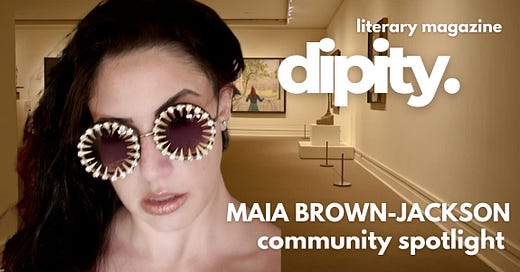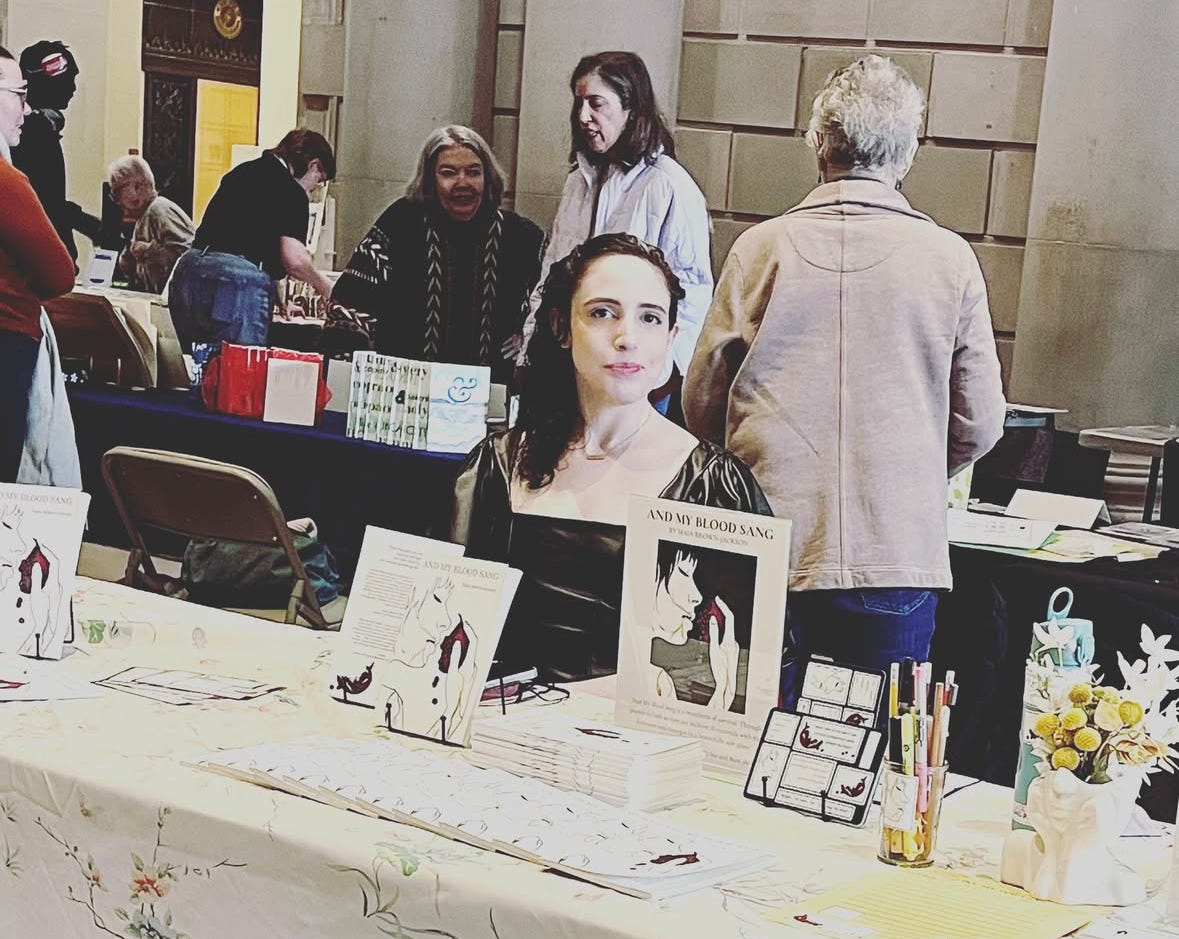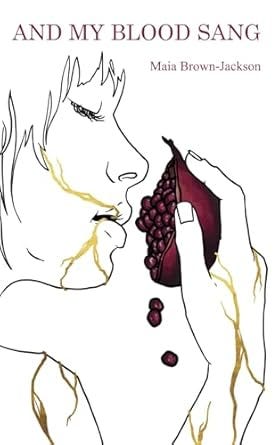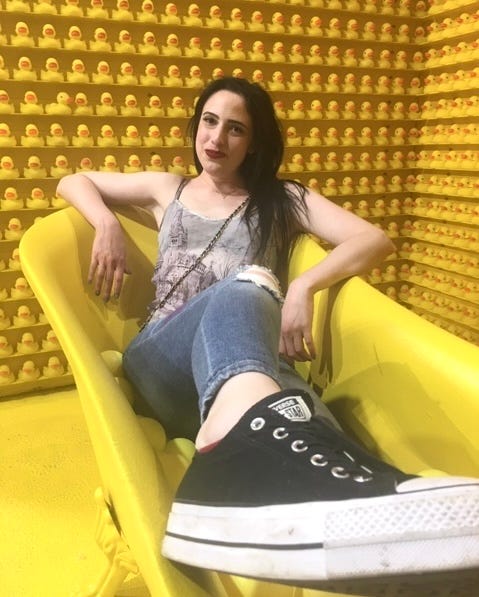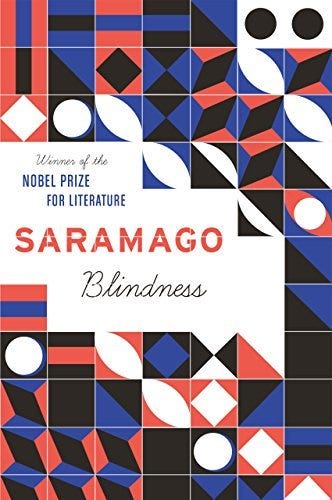Meet Maia Brown-Jackson - dipity Community Spotlight Q&A Interview no. 23
learn more about writer Maia Brown-Jackson's work through dipity's global interview monthly spotlight feature
Introduction
Maia Brown-Jackson is a symphony of papercuts, banged-up knees, and stubborn determination. She believes in the altruism of strangers, the power of direct action, and the use of the Oxford comma. She has worked everywhere from art galleries to the Special Inspector General for Afghanistan Reconstruction while volunteering for a Yazidi NGO, a cause about which she is deeply passionate. For more information about the incredible work being done (largely) by and for the survivors of the 2014 ISIS genocide, as well as some anecdotes from her time living in Iraq, check out yuvaorganization.org.
Q: What is the backstory of this poem?
I like rewriting tragedy. What's so interesting about doom without any chance of hope, anyway? Everything I've seen, everything I've lived, my 21st-century-New-York-City brand of cynicism firmly in my upbringing, and I'm still an idealist at heart. Not entirely sure how that happened, but it's certainly something I should try a bit harder to remember about myself in the difficult times: I'm fucking stubborn as all hell, and that goes for believing in happy endings when it gets right down to it as much as anything else. And I will stubbornly get through all hell, too. So sometimes that means that Orpheus and Eurydice get a happy ending, every few thousand years, because I can give them one, and I think love should sometimes get to last.
Giolì & Assia - Eurydice
Q: What were your most recent publications?
Q: Where can others find more of your work?
You can find links to more of my work at maiabrown jacksonwriting.com/portfolio (and sign up for my weekly newsletter on the contact page), and you can find my chapbook, And My Blood Sang (with reviews and options for purchase other than Amazon) at linktr.ee/andmybloodsang.
Q: What else are you working on? Are there any hobbies you’d like to share?
My other main hobby is volunteering for a small Yazidi nonprofit, the Yuva Organization for Children’s Rights. Most everyone has forgotten the Yazidi, but ISIS committed genocide against them in 2014 and thousands are still missing, enslaved or buried in mass graves that are still being uncovered. The entire community in Sinjar, in northern Iraqi Kurdistan, was forced to flee or be captured or killed and the survivors are still recovering and still in need of international assistance. Our organization helps children who have been through these horrific events with their education to make sure they are still able to reach their full potential. My time volunteering in Iraq changed my life and made me committed to advancing the Yazidi cause and trying to spread awareness about their situation and my current project right now is a series of interviews with the organization’s founder regarding his experiences from the initial attack to our ongoing work.
Q: When did you begin writing? OR What or who sparked and inspired your writing journey?
I began writing when I was too young to remember, when I was dictating words to a nanny because I couldn’t properly hold a writing utensil yet. My parents uncovered one of my first poems from age four or so, and a short story about King Arthur (with a happy ending) from a few years later, my first play from a few years after that. I’ve simply never not written, no matter what else was going on in my life. Fiction, poetry, academic papers—it’s just ink in my veins and arteries and I never seemed to be able to stop its flow.
Q: What advice would you give aspiring poets, authors, or fellow writers in the community?
One: keep fucking writing, and two: the rejections get easier. There will be so many of them, and they will not be a reflection of you or your abilities or your work and you will learn to just brush them off because the acceptances will come, too. Slower, fewer, farther between, but you have to keep trudging through. So find a community of writers where you can talk about when things feel like shit, when you want to give up, when you’re feeling like your work just isn’t good enough. Because other writers get it. And that support will help get you through the hard times because those good times will come, too.
Q: What are you currently reading? AND What book(s) would you recommend to others right now?
I read the book Blindness by José Saramago months ago, and I still cannot stop thinking about it. It is strange and very intense and does not leave you after you’re done. I recommend it to everyone I know.
Q: What was the last movie or TV show you watched or recommend others see in the community?
Right now? Ted Lasso. In these days, when everything seems to be getting worse by the minute, seeing someone just be relentlessly positive because he’s made the decision to be positive, to watch the dynamics of the team growing closer together—it’s just a break from this world. It’s a respite that’s just happy.
Q: Which poets, artists, or writers inspire you?
Some of the poets whose work I wish I had written include Anne Carson, Nikita Gill, Pavana Reddy, Richard Siken, Bianca Sparacino, and Nizar Qabbani, and some prose writers I adore include Un-Su Kim, N.K. Jemisin, Helen Oyeyemi, Haruki Murakami, and Jeff Vandermeer.
Q: If you were stuck on the moon with anyone or could pick your space flight partner, who would it be?
It would be my best friend. That might be a boring answer, but she’s the one person in the world that I know could make living on the moon, just the two of us for the rest of our lives, not just survivable but actually fun at times. To explain, in brief, there’s an occurrence known as quantum entanglement, in which two particles were connected at the very start of the universe and still, now, billions of years later and even light years apart, what affects one particle affects the other. We’re fairly certain there’s a pair of quantumly entangled particles in our bodies because it’s the only explanation for why she stopped crying from the colic that she’d had for the three months she’d been in the world when I was born. And no matter what we’re doing or where we are, we remain connected. So I think we could survive the moon.
Vienna Teng - Stray Italian Greyhound - Rockwood Music Hall NYC
Q: What's one of your favorite poems in existence?
My current favorite poem is “love as an act of merciful conquer” by Silas Denver Melvin.
To Check Out More of Maia Brown-Jackson’s Work
Circle back to some of her work mentioned above in this Q&A and check out her website: maiabrown-jacksonwriting.com.
Please Def Follow:
@tilting.at.windmills
on Instagram
@andyetpoetry
on Bluesky
Any other thoughts, comments, or shares after reading the interview?
[Interview Processed By VFORROW]
Thank you so much, Maia Brown-Jackson, for sharing and submitting to Dipity Lit Mag! ~ Jazz Marie Kaur (Vevna Forrow).
We appreciate anyone who takes the time to comment, subscribe here, pledge support to our Substack, donates directly to help fund future community projects on our website, visits the gift shop, or buys us some pizza slices over there. Stay tuned for more Substack shares and interviews. Thanks again for your support and have awesome days ahead!


